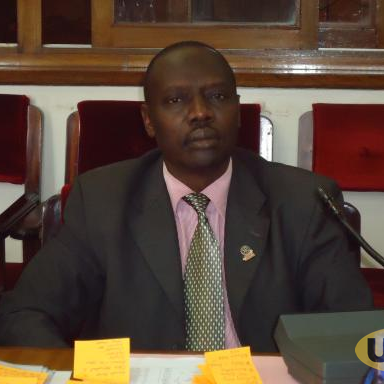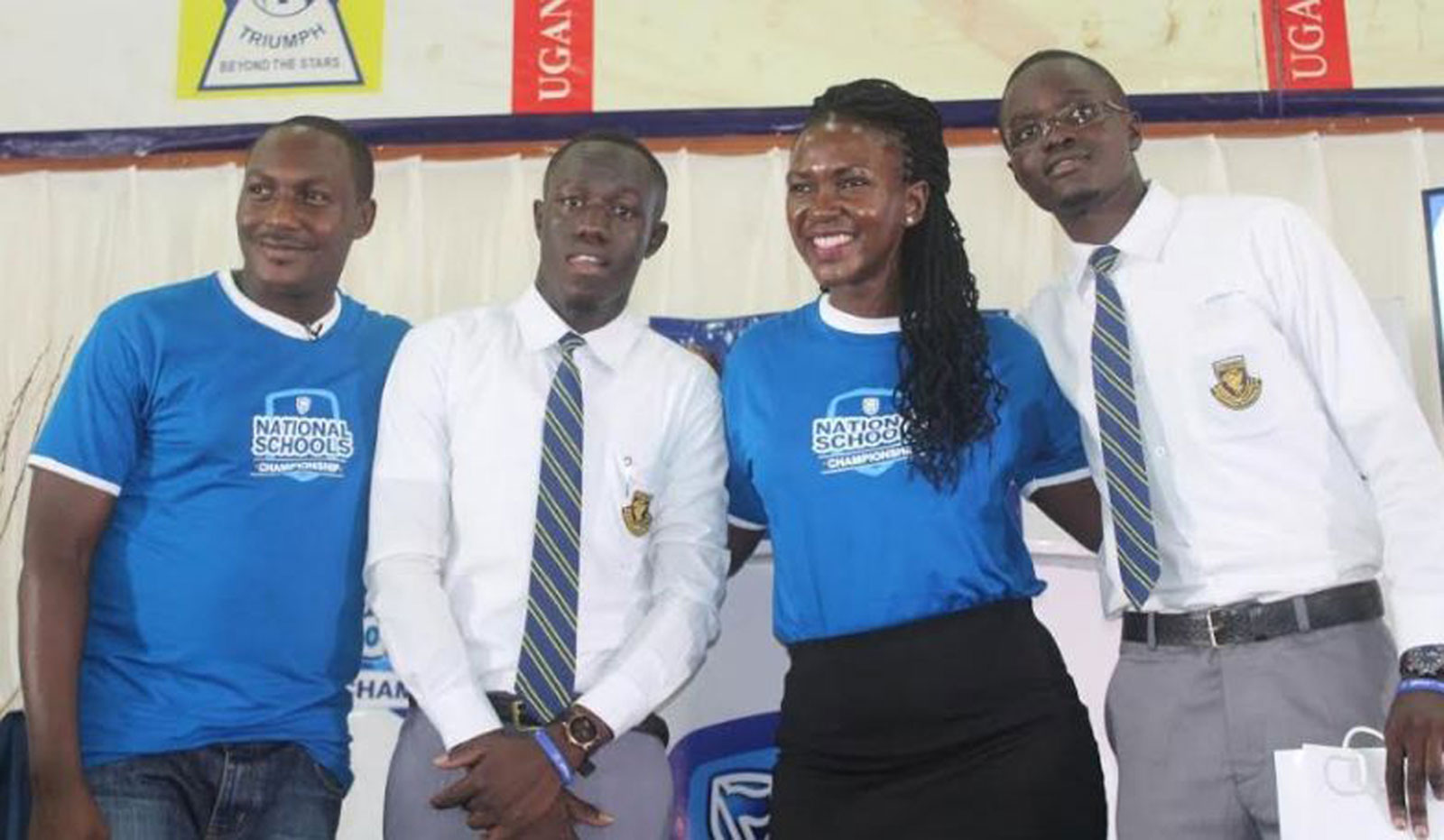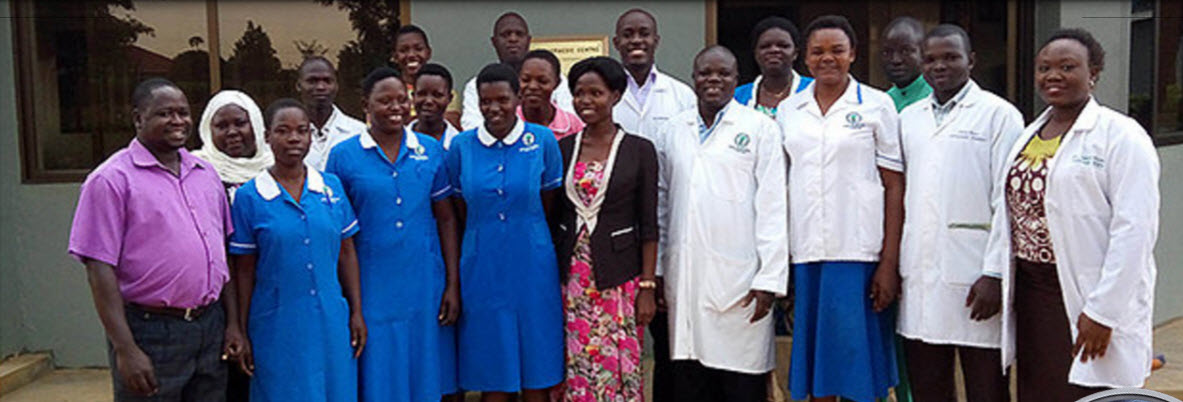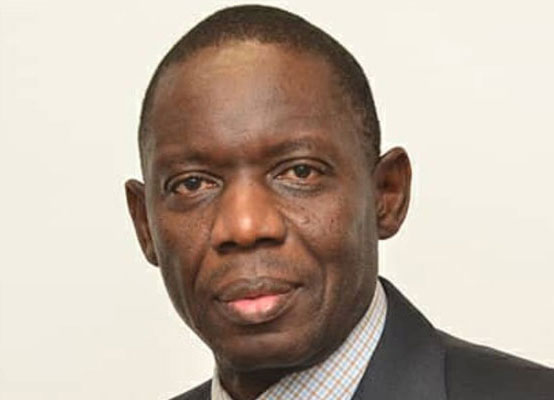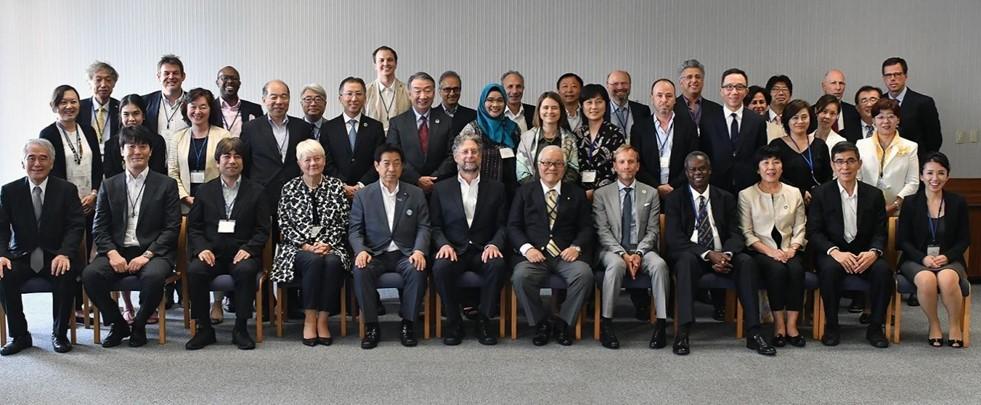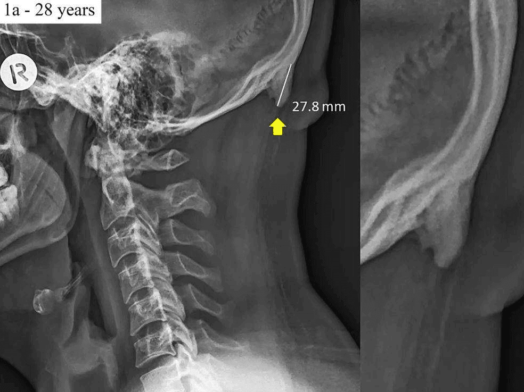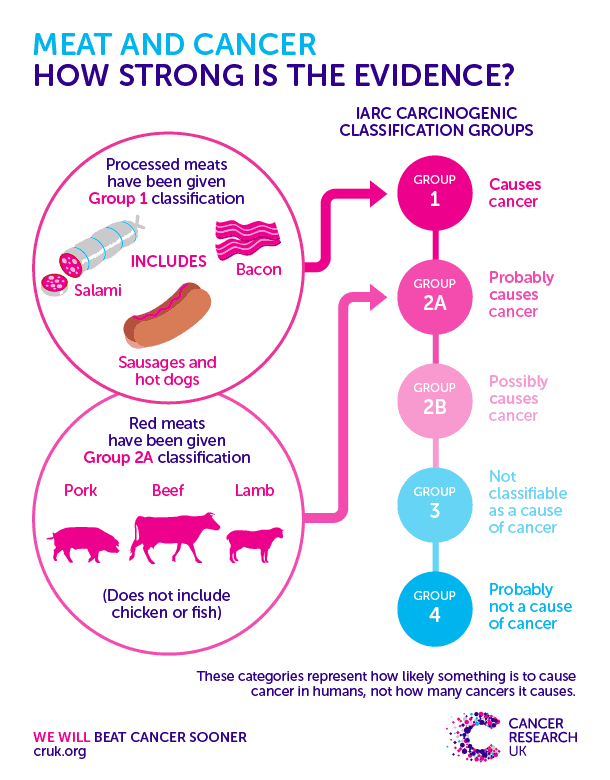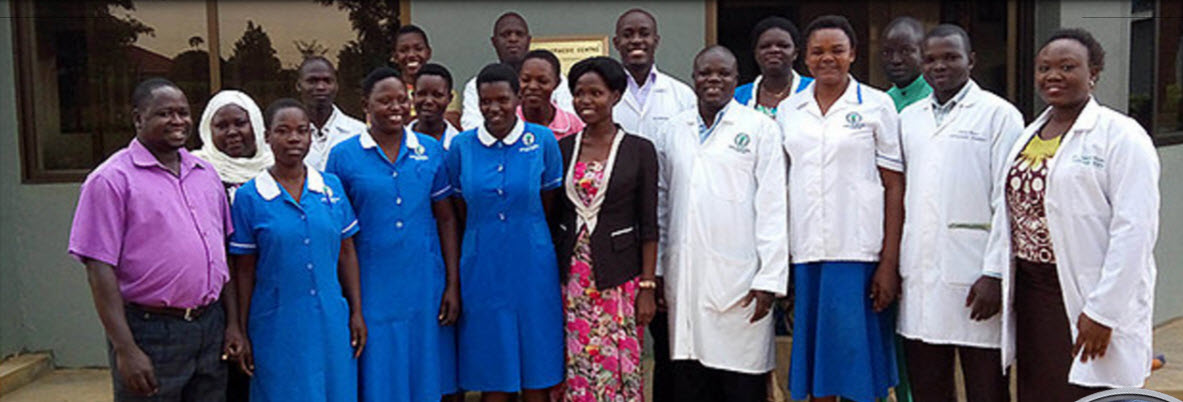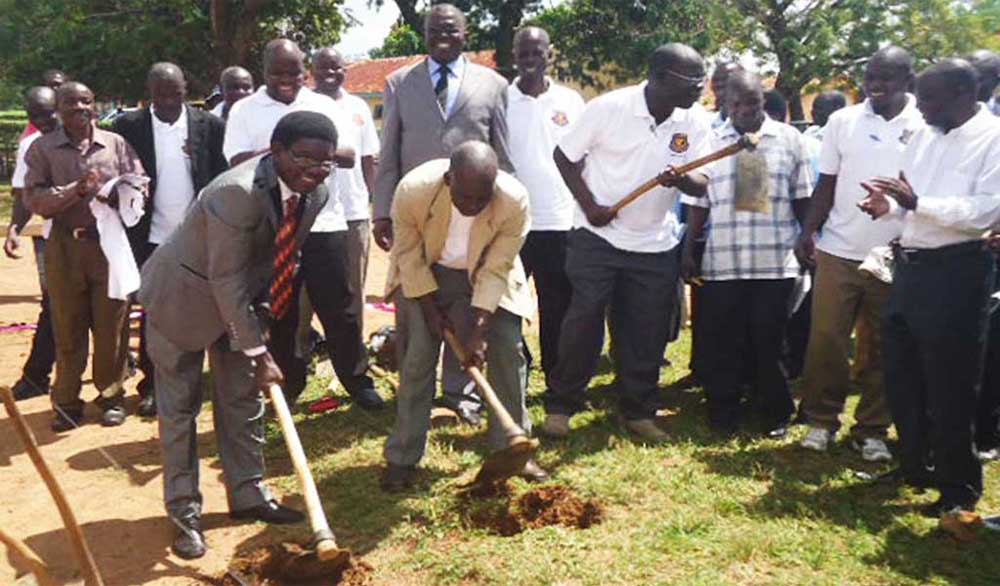At the age of 21 years, Pius Okong entered a city for the first time. Born in 1952, the second child in a family of 12, he was brought up in a village in northeastern Uganda, and as a boy had little reason to travel. But he was an intelligent child, and was encouraged to follow in his uncle’s professional footsteps and. In 1975, he traveled to the capital city of Kampala to study medicine at Makerere University- 30 years later, Dr. Okong is a leading international figure in the Save the Mothers Initiative and is President of the Association of Obstetricians and Gynaecologists of Uganda.

Dr. Pius Okong
His career has taken him all over the world – training in Ireland and Germany, studying for his PhD at the Karolinska Institute in Sweden, and serving as a consultant for many international organisations, including WHO, UNFPA, and UNICEF. Despite the international lifestyle offered to him, Dr. Okong remains committed to Uganda, where he lives and works. Indeed, he describes being able to work in Uganda as one of the most satisfying things about his job.
For some time, Okong had been concerned for the women who were unable to attend hospitals for care because of location, illness, or poverty, and says that he “wanted to find a way to reach out to them. The Save the Mothers Initiative offered him a chance to improve care not only for women in Uganda, but for those in other developing countries.
After training abroad, Dr. Okong returned to Uganda- in 1987, to specialise in obstetrics gynaecology. There he found himself at the centre of the emerging HIV/AIDS epidemic. As one of the main architects of the first HIV/AIDS clinic in the country, he recalls how “lots of different doctors from all different specialties of medicine chipped in to help with the HIV/AIDS patients” This experience not only provided expertise in mother-to-child transmission of HIV, but also reaffirmed his love for working in missionary hospitals where he discovered his passion for community work. It was at this time that he met Sister Miriam Duggan, an Irish nun and practising gynaecologist, whom Dr. Okong regards as one of his most influential mentors: Her “gentle nature and the way she conducted herself with patients, regardless of their status” inspired him to follow in her line of work.
This inspiration has helped Dr. Okong forge an impressive career. In addtion to his presidency of the Association of Obstetricians and Gynaecologists of Uganda, Dr. Okong is Head of the Obstetrics and Gynaecology Department at St. Francis Hospital in Nsambya. However his influence reaches far beyond Uganda. As a member of the International Federation of Gynecology and Obstetrics (FIGO) Committee on Safe Motherhood and Newborn Health, he was instrumental in the foundation of the Save the Mothers Initiative. This project was established by FIGO in 1997, with the aim of getting high-income and low-income countries to work in partnership to reduce maternal mortality in the developing world. For some time, Dr. Okong had been concerned for the women who were unable to attend hospitals for care because of location, illness, or poverty, and says that he “wanted to find a way to reach out to them” The Save the Mothers Initiative offered him a chance to improve, care not only for women in Uganda, but for those in other developing countries.
According to Jean Chamberlain, assistant professor of obstetrics and gynaecology at Canada’s McMaster University, who works closely with Dr. Okong on the Save the Mothers Initiative, he is “a man I would never doubt, someone of great personal integrity and undaunted dedication. Not only does he provide crucial care to vulnerable women, but he also gives them an international voice.” Chamberlain says that Dr. Okong has used his skills as a “great net-worker to engage politicians, policymakers, and the media in the global fight to reduce maternal mortality.
These skills are put to use tackling what Dr. Okong describes as the biggest challenge to those working in maternal health: “capturing the commitment of political leaders. He believes that the situation cannot improve until maternal health is established on the political agenda of developing countries. He explains that “if it’s not on their agenda then they won’t speak about it, and the communities won’t know about it so nothing will change.” Dr. Okong believes that only with such political commitment will Millennium Development Goal 5 be achieved: “Governments must sign up to a plan. A 5-to-7-year commitment to give them some sort of ownership over reaching their own targets. And the governments’ plans must involve politicians, health-care workers, public-health workers, and the community. For Dr. Okong, community involvement from the outset is vital so that people feel included rather than dictated to—Such an approach can make a real difference to improving public health, he says.
As leaders in maternal health gather in London this week to celebrate the 20th anniversary of the Safe Motherhood Initiative, Dr. Okong says that he “hopes that the Women Deliver meeting will not just be a time for reflection and looking back, but that each person can leave the conference thinking “this is how I am going to reassess and strengthen my plans to reduce maternal mortality in my country”. He wants to see a new level of commitment from politicians and global agencies to “inspire people to return to their countries energised by realistic action plans”
Dr. Okong has only one wish: that “by 2015 every woman in Uganda and sub-Saharan Africa is empowered to demand her right to health.
Biography:
Dr. Pius Okong M.B.Ch.B., Dip Obs, M.Med (MU), PhD (KI). He attended Teso College Aloet from 1973 to 74 for ‘A’ level. He was House Captain for Kenyatta during his term. He went on to join Makerere University in 1975 and graduated as a Medical Doctor in 1980. He earned his master’s degree in 1986. He carried out pioneer research on the human papilloma virus in Uganda, showing its association with cancer of the cervix, and also conducted subsequent research linked to vaccine development for this most comman cancer in women.
He did his doctoral studies on maternal health and was awarded a PhD from the Karolinska Institute in, Sweden in 2004. He worked as an obstetrician and gynecologist in Mulago NRH and Nsambya Hospital. After 32 years he retired from the civil service. Dr. Okong served as president of the Association of Obstetricians and Gynecologists of Uganda, and in different capacities internationally with the FIGO, WHO, PMNCH. He was honored with distinguished recognition by the Bill and Melinda Gates Foundation on Nov, 2010. He also held positions as associate professor (STM, UCU 2008) and Honorary Professor of Obstetrics and Gynecology (UMU 2011). He served as chairperson of the Health Service Commission from March 2012 until March 2016.
Professor Pius Okong was awarded the Pearl of Africa Lifetime Achiever award in 2013.

